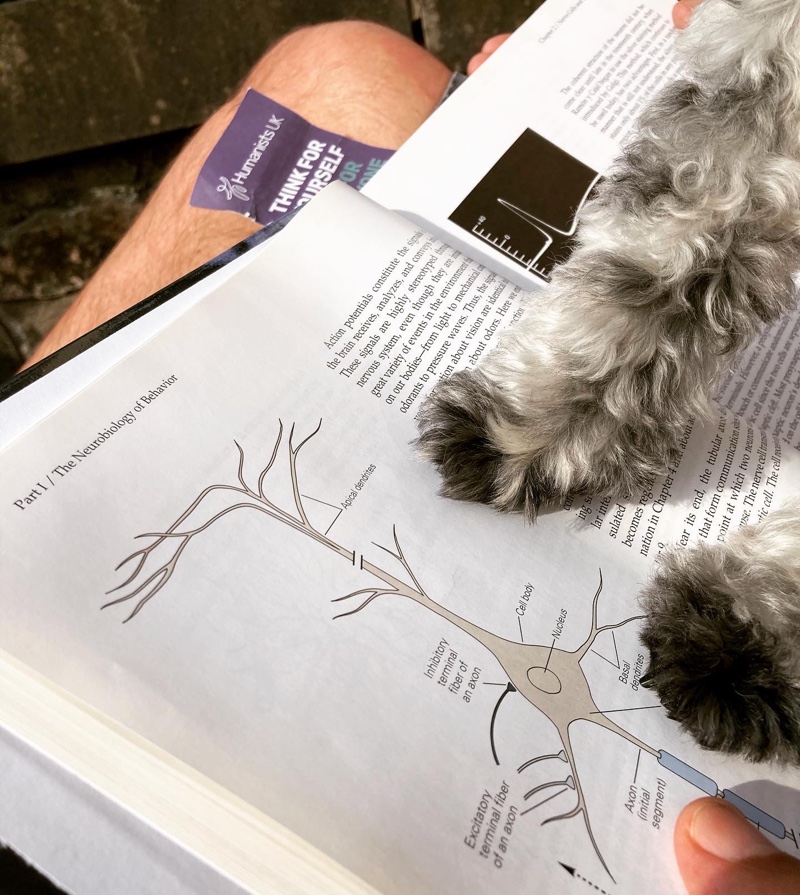How long have I got?
When you are diagnosed with terminal cancer, the first thing that pops into your head is “How long have I got?”
If it’s only a short time, like a few months, you make plans for your family, get your will and power of attorney done and try to make the most of the time left.
If you have many years to go, you probably make different plans. Maybe you think about early retirement and go live by the sea with your philosophy books and a constant supply of real ale. Or maybe you make a bucket list and go see some elephants in Africa or drive a muscle car in Death Valley.
But what should you do if you don’t know how long you have? Maybe you just carry on with your everyday life. Maybe you write some code, do your shopping and walk to the pub in the evening.

When I was diagnosed with a brain tumour, I was determined not to ask for a prognosis and was ready to take whatever fate had in store for me. I have had three people close to me who died of the same tumour that I have and they all died quite quickly so I assumed that I would too.
Neurosurgeons and oncologists can’t really predict how long you are going to live. All they can do is look at the history of people about your age with a similar tumour of a similar size. Then they take a kind of average and add a few months for good luck.

If you are 60 with a low-grade glioma, you have a 50% chance of surviving two-ish years. If you are 59, it’s more like ten-ish years — unless your tumour is anaplastic or in more than three lobes or an oligodendroglioma or in a scary bit of your brain.
In other words, it’s complicated.
Most people with a brain tumour join an online community and the first thing they tell you is “Whatever you do, don’t google your tumour.”
Their motivations are sincere — if you google, you’ll find bad news and most people don’t want to find bad news — but I think it’s terrible advice and said so on my blog. I think most people would rather know the news, even if it is bad news. Most people are going to google anyway and it’s better to tell them how to google than tell them not to google.
Your prognosis affects your treatment choices too.
Some people, if they don’t have long to live, will ask for extra chemo or some experimental treatment or have magnets put on their heads. Not me. I would rather go and sit on the pontoon with my little dog and watch the ducks on the harbour. If you have chosen extra treatment, that’s fine. Good for you. But it’s not for me.
What about a longer prognosis? If I have two years left, do I want to spend one of them puking? Will it make me live longer? Who knows? I’ve made it two years without chemo. If I’d had chemo would I make it to three? Or fifteen? Who knows?
Anyway. Here I am two years later, still going strong, and I wish I had asked for a prognosis back at the start. In fact, I plan to ask my oncologist when I see her in a couple of months. I’m still ready to face whatever comes along but I wish I had a bit more information to make some proper plans. If I have a long time left, I’d like to go live by the beach somewhere or maybe in the tropics. If I don’t have long, I’d rather not uproot my family. I’d rather make some plans and know that they’ll be OK.

In The Quiet American, the main character, Fowler, is approaching the end of his life and he settles down with a Vietnamese woman who prepares an opium pipe for him every evening. I would be down with that. Or with a Maltese woman buying me boozy milkshake at Fontanella in Mdina. As long as they serve real ale and I can bring my philosophy books, I’ll be OK.
A pipe of opium, or the touch of a girl who might tell you she loves you.
The Quiet American — Graham Greene
And then, something happens, as you knew it would. And nothing can ever be the same again.



